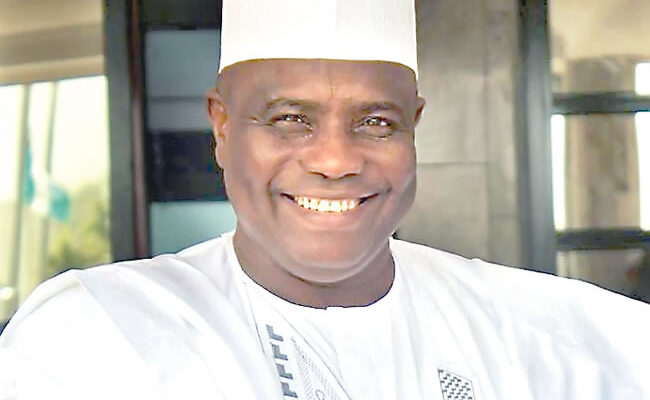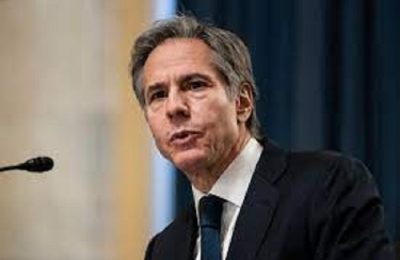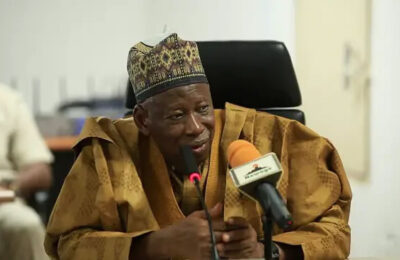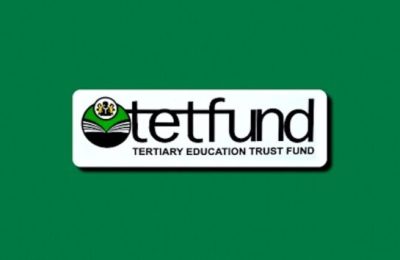

OLAKUNLE MARUF writes on some of the efforts of the immediate past governor of Sokoto State, Aminu Tambuwal, at improving the education sector in his eight-year administration.
On assumption of office as governor of Sokoto State, Aminu Tambuwal assured residents of the state of his determination to take the education sector in the state to the next level by leaving it better than he met it.
Consequently, he declared a state of emergency on education, a situation experts described as one major factor that has helped the government in the rebuilding process of the education sector.

The governor later set up a special committee headed by the Sultan of Sokoto, Muhammad Sa’ad Abubakar, to oversee the education tax in the state. The impact of committee is visible as almost all the schools in across the 23 local government areas have a new block of two-storey building courtesy of the intervention of the committee.
Observers are of the view that true to his promise, the immediate past governor did a lot in improving the sector and placed the state among its peers in and across the country by improving upon what was on the ground in 2015 when he assumed office.
Tambuwal, as part of his first move to deliver on his promises, identified Gudu Local Government Area of the state as the starting point. The council has no single senior secondary school not only in the state but also in the whole country.

Students who intend to further their education beyond junior secondary school in this school would have to travel down to the state capital, a journey of over 100 kilometers to acquire senior secondary school education.

This development has been found to have contributed in no small way to high level of illiteracy and early marriage, especially among the young girls in the area as most parents who could not afford the cost of distant education resolve to take their wards especially girls for early marriage.
To address the challenge, the governor approved the construction of the state-of-the-art school building to address the challenge in Balle, headquarters of Gudu Local Government Area.
The modern school edifice consists of classrooms, laboratories, a library, dining, office accommodation, hostel accommodation for prospective students, official residence for staff, sport facilities among many others.
The school was built to fill the gap in enrollment of prospective senior secondary school students in the local government and its immediate neighbors as well as Niger Republic which shares border with the local government area.
Speaking in one of his media engagements, the governor said, “when we came in and set up a committee of a team of experts on education on the way forward, we were advised on the need to pay attention to both basic and tertiary education sectors in the state.
“As a result of that, we separated Ministry of Education from just one Ministry of Education to Ministry of Basic Education and Ministry of Higher Education. Of course, the Ministry of Science and Technology was there but we unbundled it to make it Ministry of Science, Technology and Innovation.
“Education has always been taking the highest chunk of our budget in the state and the main reason behind that is the best way to avoid all of the challenges from insecurity, poverty and others is to focus on education.
“Once people are educated, is not just to find a white collar job, but can always find a way to engage themselves. So, we identified education as a key to all the spheres of development of human society. That is why we make it a priority.
“The figures are there. When we came in, go and check, what was the figure of the out-of-school children and what is the current figure in Sokoto State. What was the report of UNICEF and compare it with today.
“Go and check the results of WAEC and NECO this year. Is there any improvement? These are now students that we have trained overtime and the results are coming out. We are beginning to see the impact of our investment in educating these children.
“I challenge you to go and look for the figure from the Ministry of Education and you will see exactly what the situation is. I can assure you that we have achieved a lot. I am sure you have been to Gudu, the only local government without a senior secondary school in Nigeria before we came in. We have established a very mega secondary school there.
“But unfortunately, insecurity has made it very impossible for us to put the school to use. The challenges of insecurity are also affecting the education sector.
“I can tell you that I have begun to think that we may have to devolve most of our schools in Sokoto State and pay attention more today until such a time when the security situation in the state improves.
“Education is a success story in Sokoto as I said. We have established many primary schools. We have rehabilitated a number of them. We have established new ones both under SUBEB and even for under the Ministry of Local Government Affairs.
“We have also established as you are aware Girls Science Academy to promote girl child education. We have established a female education board which I believe is one of the very best in the country,” he said.
The governor further said, “We are also the first to make education free and compulsory in both primary and secondary school in the state. I believe that both in terms of policy, legislation and investment, this administration has done a lot on education in Sokoto.
“In fact, the figures are there and will speak for us. Also, part of what we have been doing is that an institution like Sultan Abdulrahaman School of Health Technology has not received much of physical investment in the past. We are currently doing a number of projects in that school.
“The state college of education and the polytechnic, we are doing some projects there also and not to talk of the state university, the state colleges of Nursing and Midwifery both in Sokoto and Tambuwal.
“We have adopted holistic approach in addressing the issue of education sector in the state from the basic to secondary and tertiary levels. Part of it is using the 50th anniversary of Shehu Shagari College of Education to upgrade it to a University of Education so that we can have training ground for more teachers we might be lacking in the state.”
Tambuwal believes that education is the cornerstone of all growth, which is why he allocated the largest portion of the administration’s annual budget to it upon taking office.
Given the widespread perception that Sokoto’s educational system is underdeveloped, this admirable action was taken to mobilise support for education and ensure that it reflects the interests and aspirations of the populace.
The governor had at inception sent a “Right to Education Bill” to the state House of Assembly, putting his words into effect. All children in Sokoto State between the ages of six and 18 are now required to receive free and compulsory education as a result of a bill that was approved by the legislature and signed by the governor.
With the support of all significant educational stakeholders, the governor initiated an enrollment drive campaign to ensure the full and efficient implementation of the “Child Right Law.”
The initiative aims to alter the unfavourable perception of Sokoto State in the area of western education by getting all out-of-school children in the state back in the classroom. Happily, according to data made public by UNICEF, Tambuwal’s administration has successfully enrolled 75,200 out-of-school children in school by the year 2020.
Tambuwal formed the State Consultative Committee on Education, which is headed by Muhammad Sa’ad Abubakar, the Sultan of Sokoto, in order to support the education sector even further. The committee, whose power comes from the administration initiated education tax, was successful in building and renovating several formal and informal elementary and secondary schools as well as providing them with modern amenities throughout the state.
Other noteworthy educational initiatives carried out by the administration include the opening of the Government Girls Arabic Junior Secondary School in Sanyinna in Tambuwal Local Government Area, the Command Boys Secondary School in Shagari Local Government, the renovation of Gamji Girls College in Rabah Local Government, the expansion and renovation of the Government Day Secondary School in Tambuwal, as well as similar initiatives in Kilgori of the Yabo local government areas and another one at Kofar Rini.
The administration decided to take the bull by the horns in order to further revitalise the education sector and started and finished building the Government Science Academy, Kasarawa in the Wamakko local government.
In its rating, the Better Education Service Delivery for All (BESDA), with an enrollment figure of over 70,000 children in Sokoto State has been adjudged the education programme as having surpassed the watershed mark of 100 per cent by recording over 140 per cent.
This was the verdict of the national implementation adviser of the Universal Basic Education Commission (UBEC), Dr Danjumma Adamu Dabo, who led the BESDA implementation committee on a visit to Tambuwal at the Council Chamber of Government House, Sokoto, late last year.
According to him, Sokoto government is one of the states that have shown remarkable achievements on BESDA implementation.
He said available record shows that in the seven local governments participating in the BESDA programme, 769 schools are online and have registered 264,785, outstripping the targetted enrollment of 187,682.
He explained that so far, in the non-formal learning centres the programme has recorded over 4,000 enrollments, which is a very laudable achievement by the state government.
These results which herald the last verification exercise precede the end of BESDA programme.
Responding, Tambuwal commended the team and the World Bank for coming up with the initiative with a view to addressing the challenges that are peculiar in the target states.
He expressed appreciation for the programme, saying that it has helped in tasking the state education manpower, making it evolve a competitive spirit geared towards achieving results.
Tambuwal apart from ensuring no indigene of the state paid a dime in acquiring education from elementary level up to the university also ensured payment of token to parents in order for them to allow their girl child acquire western education.
He has also through the state scholarship board sponsored over 200 students abroad for different science programme such as medicine, nursing, pharmacy, engineering, ICT among many others.
Meanwhile, within this period the Tambuwal-led administration received numerous awards in celebrating his achievement in the education sector in the state. Amongst this is Tribune Platinum Award, which was bestowed on him by management of ANN Plc, in commemorating 70 years of the foremost Newspaper sometimes in 2019.
READ ALSO FROM NIGERIAN TRIBUNE








